The duties of an auditing clerk are varied and can include any combination of bookkeeping, data entry, and record management. In addition, an auditing clerk is responsible for auditing financial records to ensure they have been accurately reported. Therefore, an auditing clerk’s resume will almost always be a hybrid resume unless you have extensive experience as an auditor or a similar role. Because the responsibilities of an auditing clerk can vary so widely, it’s best to focus on the skills rather than the job title when creating your resume. That way, you can highlight your relevant skills regardless of whether they are specifically in accounting or another field. Let’s take a look at what you should include in your resume, as well as some practical examples and tips for writing it effectively.
Auditing Clerk Resume Example

Download This Auditing Clerk Resume as PDF
Bookkeeper Resume Example
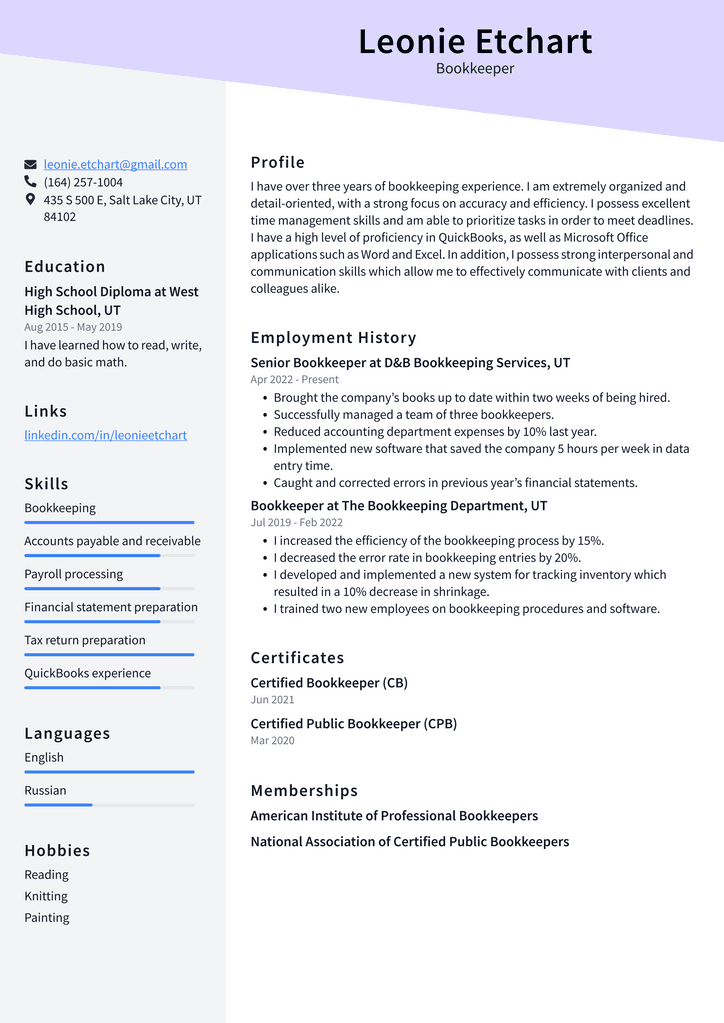
Download This Bookkeeper Resume as PDF
Payroll Clerk Resume Example
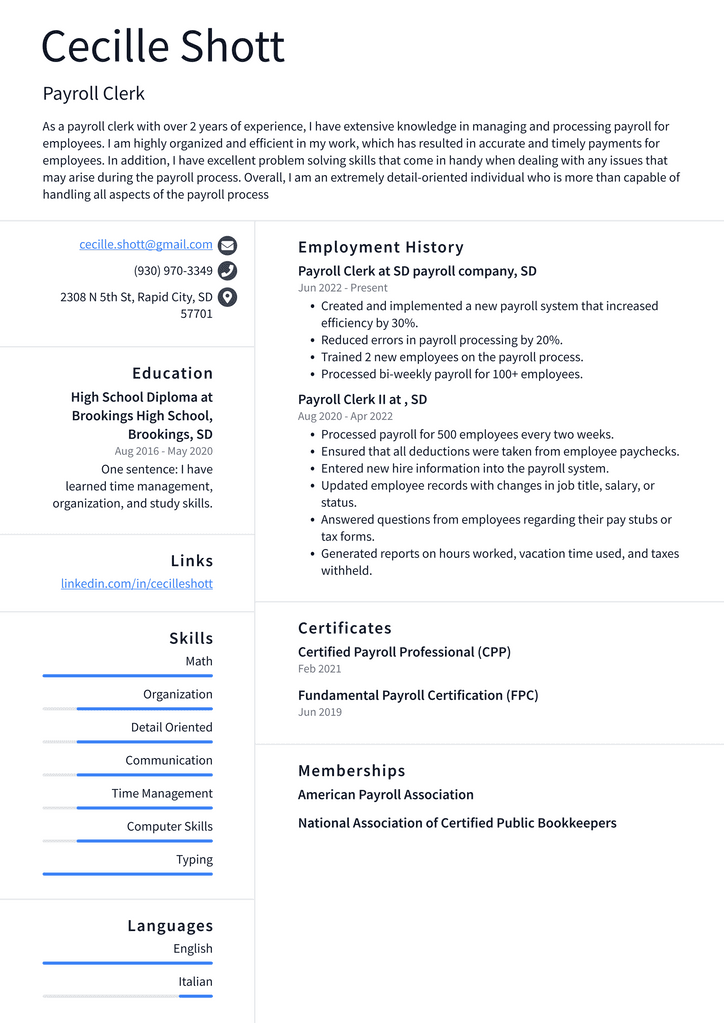
Download This Payroll Clerk Resume as PDF
Accounts Payable Clerk Resume Example
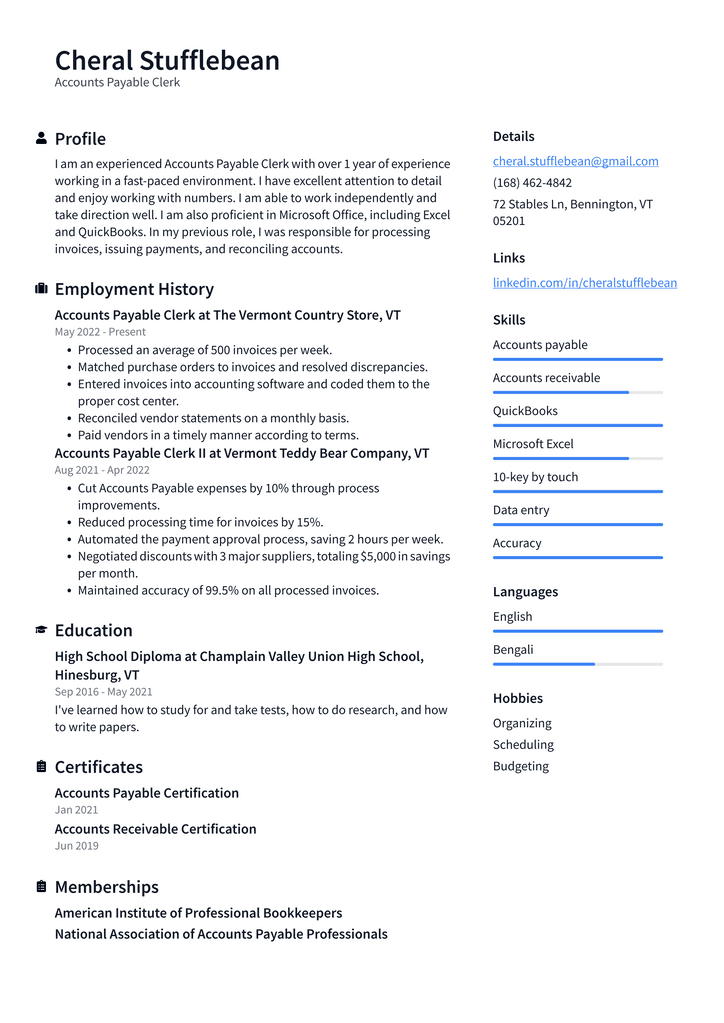
Download This Accounts Payable Clerk Resume as PDF
Accounts Receivable Clerk Resume Example
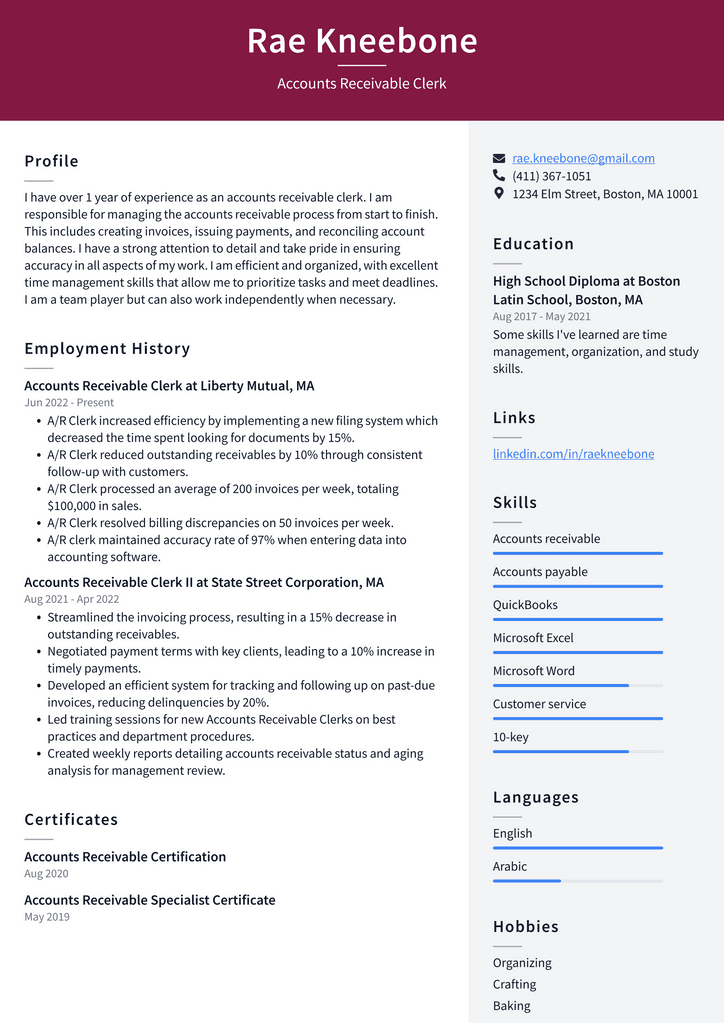
Download This Accounts Receivable Clerk Resume as PDF
Office Manager Resume Example
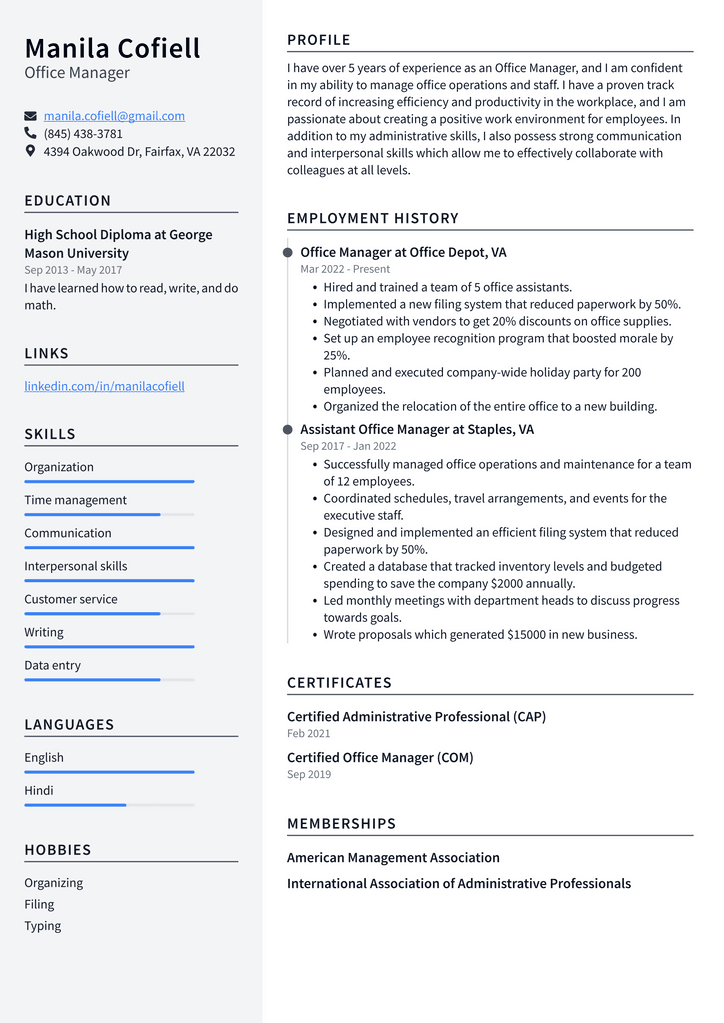
Download This Office Manager Resume as PDF
Administrative Assistant Resume Example
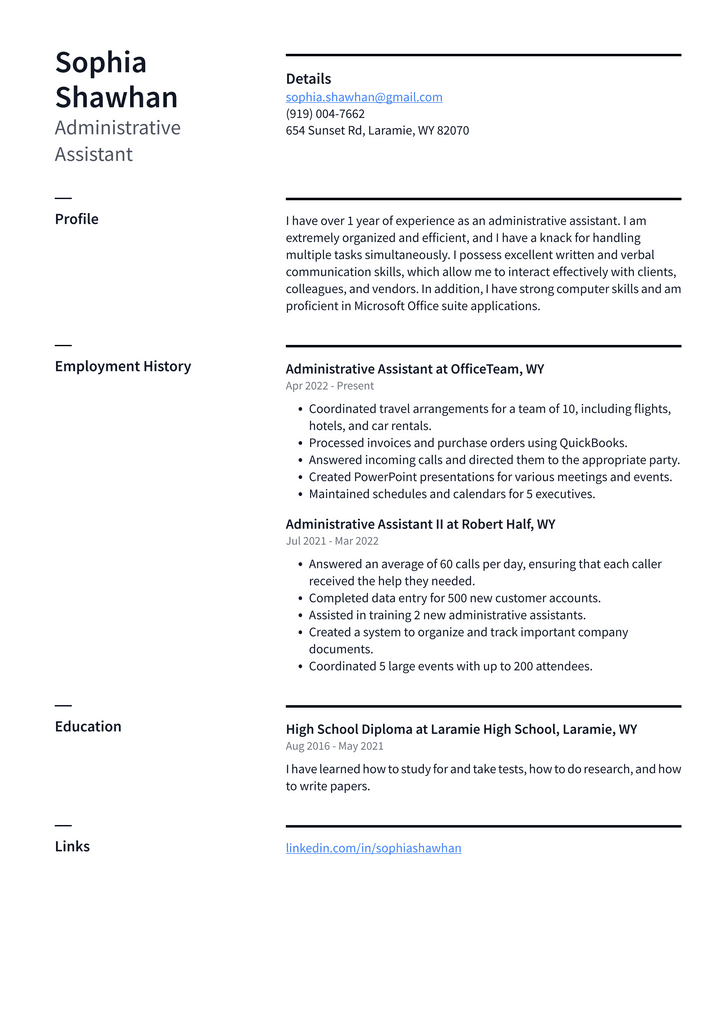
Download This Administrative Assistant Resume as PDF
What Should I Include in My Auditing Clerk Resume?
Your resume should be a clear and concise document that highlights your relevant skills and experience. Including all necessary information is essential, but you don’t want it to be too long or difficult to understand. Here are the main elements of a resume for an auditing clerk: A cover letter is optional but can be helpful if you have a unique situation or would like to explain any weaknesses in your resume.
- Contact Information: Include your name, phone number, email address, and other methods of contact where applicable. You may also want to include your address if you apply for a remote job.
- Education: List your degree and any relevant coursework. If you’re still in school, you can include expected graduation dates.
- Work History: You should list your most recent position, including start and end dates. Include any relevant job titles in your past positions. You should also include the location of each job.
- Skills: Skills are what make you stand out from other applicants. Make sure you list any relevant skills, even if they seem unrelated to accounting or auditing.
- Certification: Include it in your resume if you have the relevant certification. It’s best to list the official name of the certification followed by the date you received it.
Order of Importance
If possible, put your education at the top of the resume, followed by any certifications or special skills. Next, you want to list your work experience, followed by any relevant skills that don’t fall under the work history category. Make sure you list your skills in the order of importance because they will appear first on the resume. This makes them the first thing employers will read, so they must be relevant to the job you’re applying for. When listing your experience, the most relevant experience first, followed by the less relevant experiences. Some employers will not look past the first few lines of your resume, so it’s essential to ensure they see the relevant information immediately.
Skills to Include
Since you can’t put everything you’ve done in the past on a resume, it’s essential to choose which skills to include carefully. You want to select skills that are relevant to the job you’re applying for and that are quantifiable (for example, “organized” or “strong leadership skills” are not quantifiable). Here are some skills that are often relevant to an auditing clerk’s resume:
- Bookkeeping: If you have experience in bookkeeping, it’s important to note this on your resume. If you’ve used a specific software for bookkeeping, you can also note that on your resume.
- Data Entry: If you’ve done data entry in the past, you can include this on your resume. You can also specify what type of data you’ve been entering.
- Financial Reporting: If you have experience auditing financial records or accounting, you can include this on your resume. You can also specify what type of financial records you have audited.
- Microsoft Office: This is an essential skill for any job. If you’ve used a specific feature of Microsoft Office in the past, you can include that on your resume.
Resume Objectives
Every resume should start with an objective. An objective is a short statement that describes what you are looking for in a job. For example, “Seeking a bookkeeping position that will utilize my strong organizational skills” is a good objective. In your goal, you want to highlight what sets you apart from other applicants. You can also include information not elsewhere on your resumes, such as your current location or the hours you are available to work. If you are applying for a job far outside your experience, it’s a good idea to include an objective explaining why you’re using it. For example, you might want to write something like, “Seeking a position as an auditing clerk in a new industry to expand my skill set.”
Conclusion
The duties of an auditing clerk vary depending on the job, but they are typically responsible for auditing financial records and other related tasks. An auditing clerk’s resume should highlight relevant skills and experience, regardless of whether they are in accounting or another field. When creating your resume, include all necessary information while keeping it concise and easy to read. You should have your name, contact information, education, work history, skills, and certifications or special training. You should also include an objective and a section for your education.